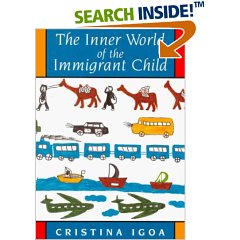|
|
|
Comprehension I |
Comprehension II |
Expression III |
|
Expression IV |
Literacy Studies I
|
Literacy Studies II
|
|
News in the English Mass Media I |
News in the English Mass Media II |
Seminar: Issues in Language Education |
|

English Comprehension I
(Spring)
Aims and Activities:
This course will cover many topics of general
interest. Students will participate in a variety of
listening and reading tasks to improve their comprehension.
Classes will typically include whole group, small group,
pair, and individual activities depending on the tasks and
topics.
Evaluation: Evaluation will be based on classroom performance,
homework
assignments, and other assessment considerations.
Textbook: Impact Listening 2, Journeys
Reading 2
Reference Materials
Syllabus
Back to Top
|
|

English Comprehension
II (Fall)
Aims and Activities: This course will cover the second half of the
textbooks used in English Comprehension I. As in the first
semester, there will be many topics of general interest, and
students will participate in a variety of listening and
reading tasks to improve their comprehension. Classes will
typically include whole group, small group, pair, and
individual activities depending on the tasks and topics.
Evaluation: Evaluation will be based on classroom performance,
homework
assignments, and other assessment considerations.
Textbook: Impact Listening 2, Journeys
Reading 2
Reference Materials
Syllabus
Back to Top |

English Expression III
(Fall)
Aims and Activities: This course will cover many topics of general
interest. Students will participate in a variety of
discussion, writing, and presentation tasks to improve their
ability to expression themselves. Classes will typically
include whole group, small group, pair, and individual
activities depending on the tasks and topics.
Evaluation: Evaluation will be based on classroom performance,
homework
assignments, and other assessment considerations.
Textbook: Impact Values
Reference Materials
Syllabus
Back to Top |

English Expression IV (Fall)
Aims and Activities: This course will cover the second half of the
textbooks used in English Expression III. As in the first
semester, there will be many topics of general interest, and
students will participate in a variety of discussion,
writing, and presentation tasks to improve their ability to
expression themselves. Classes will typically include whole
group, small group, pair, and individual activities
depending on the tasks and topics.
Evaluation: Evaluation will be based on classroom performance,
homework
assignments, and other assessment considerations.
Textbook: Impact Values
Reference Materials
Syllabus
Back to Top |
International Affairs and
Culture: Introduction to Literacy Studies I (Basic
Principles and Practices) Spring
Aims and Activities: This course aims to develop a basic
understanding of literacy from social, psychological, and
educational perspectives. Some of the topics that may be
covered are (1) definitions of literacy; (2) issues in the
learning and teaching of reading and writing; (3) child.
adolescent, and adult literacy; (4) how social and cultural
differences affect literacy at home and school; (5) reading
and writing curricula in American schools, and (6) related
topics. Activities include lectures, whole class and small
group discussions, analysis of videos of American
classrooms, and Internet research projects.
Evaluation: Evaluation will be based on classroom performance,
homework
assignments, and other assessment considerations.
Textbook: Handouts and Internet materials
Reference Materials
Syllabus
Back to Top |
|
International
Affairs and Culture: Introduction to
Literacy Studies
II (Global Issues) Fall
Aims and Activities: This course aims to develop a basic
understanding of literacy programs in developing and
industrialized countries around the world. Some of the
topics that may be covered are (1) the current status of
literacy around the world; (2) psychological, social,
economic, political, and humanitarian aspects of literacy;
(3) governmental and non-governmental (NGO) literacy
programs; (4) educational standards and assessment; and (5)
regional literacy program in Africa, Asia, Latin America,
North America, and Oceania. We will examine literacy
materials and reports from sources such as UNESCO, JICA,
and Actionaid. Activities include lectures, whole
class and small group
discussions, and Internet research projects.
Evaluation: Evaluation will be based on classroom performance,
homework
assignments, and other assessment considerations.
Textbook: Handouts and Internet materials
Reference Materials: <
www.proliteracy.org
> <www.womeninliteracy.org>
etc/
Syllabus
Back to Top |
English Topics (Adv.): News in the
English Mass Media I (General Topics) Spring
Aims and Activities:
This course aims to improve the student's
all around ability to understand, write about, and discuss
news topics appearing in the English mass media: newspapers,
newsmagazines, television, and the Internet. Different types
of articles will be studied such as advice columns,
editorials, feature stories, opinion columns, and straight
news. Activities include listening to short
lectures, reading articles, watching videos, doing research
on the Internet or in the library, discussing topics in
small groups, writing summaries and opinions, and making
short presentations. In addition to free-choice reading,
there will be a common news story or video that the whole
class will study and talk about together.
Evaluation: Evaluation will be based on classroom performance,
homework
assignments, and other assessment considerations.
Textbook: Handouts and Internet materials
Reference Materials
Syllabus
Back to Top |
English Topics (Adv.): News in the English Mass Media II (Theme Topics and
Area
Studies) Fall
Aims and Activities:
This course aims to improve the student's
all around ability to understand, write about, and discuss
news topics appearing in the English mass media: newspapers,
newsmagazines, television, and the Internet. Students will
choose one or more themes (health, politics, environment,
etc.) or areas of the world (city or country such as San
Francisco or Canada) they are interested in, collect
information on the Web or in the library, and prepare short
oral and written reports based on news stories they have
found. In addition, there will be a common news story or
video that the whole class will study and talk about
together.
Evaluation: Evaluation will be based on classroom performance,
homework
assignments, and other assessment considerations.
Textbook: Handouts and Internet materials
Reference Materials
Syllabus
Back to Top |

Seminar 2004 (Language, Literacy,
Society, and Culture): Issues in Language
Education in the
United States: Elementary, Middle School, High School, and
Beyond (Yearlong)
Aims &
Contents: (1) To become knowledgeable about issues
facing American education and society in areas of language
education for native and nonnative learners such as student
diversity, refugee and immigrant language problems, heritage
language preservation, cultural identity through language,
and related concern, and (2) To become familiar with the
basic principles and techniques of tutoring
young people and
adults.
Activities: There will be weekly discussions and
homework assignments based on readings from the textbook and
handouts. In the second semester, students will prepare a
written research report and present a final oral report of
their findings. There will be occasional films or
documentaries about education in America.
Evaluation: Class participation and homework (30%).
Midterm objective test on the course readings (30%). Final
written report and oral presentation
(30% + 10%).
Textbooks: Cristina Igoa.
The Inner World of the Immigrant Child
Reference Materials: <
www.edutopia.org > <
www.crede.org
> etc.
Syllabus
Back to Top |
|
Home Sophia Junior
College |
|
| |